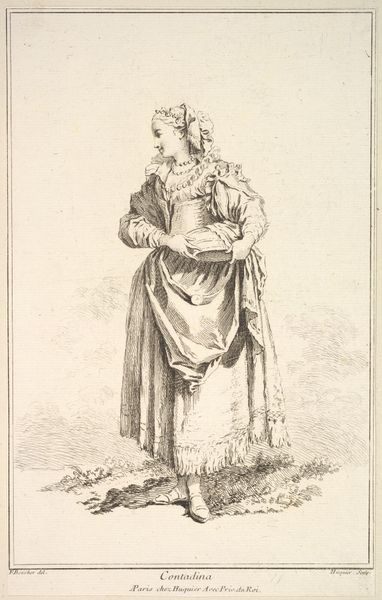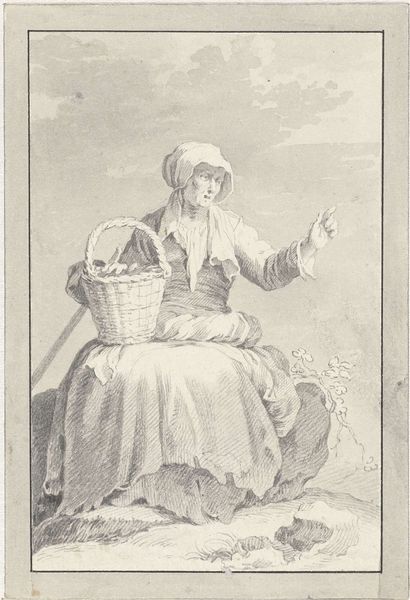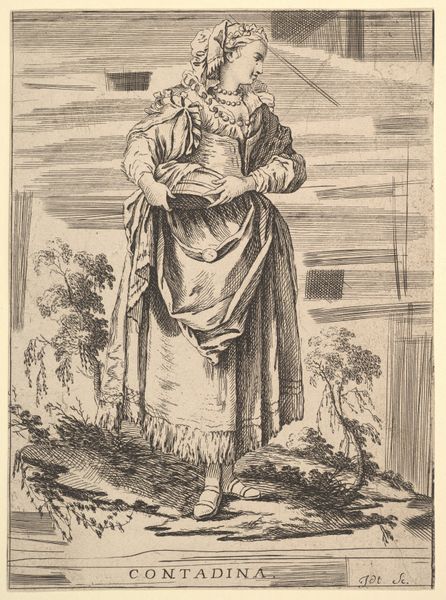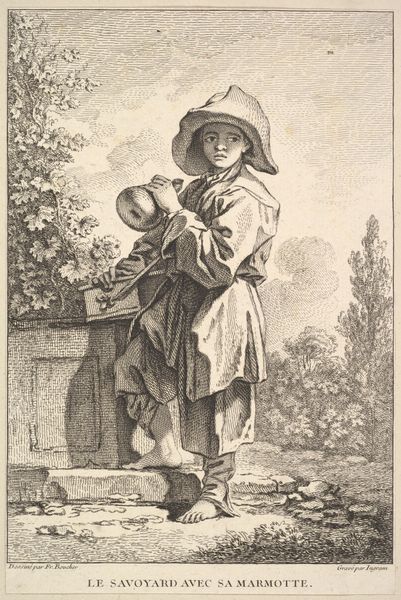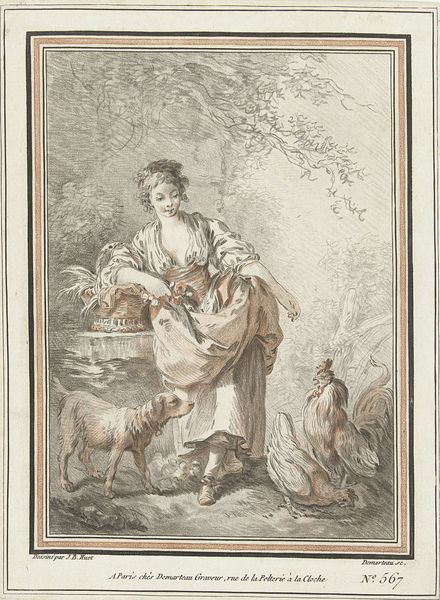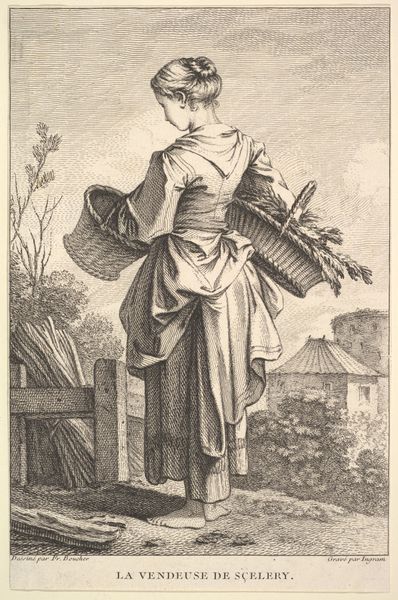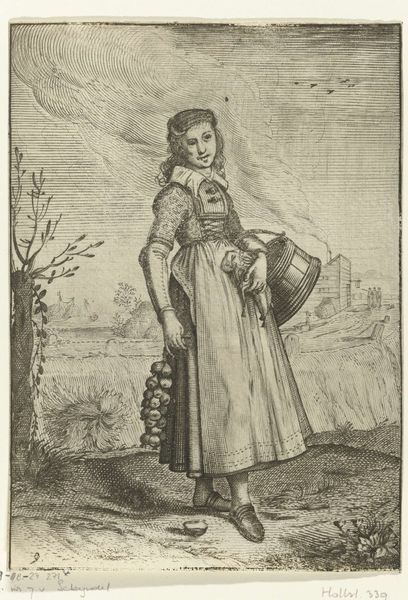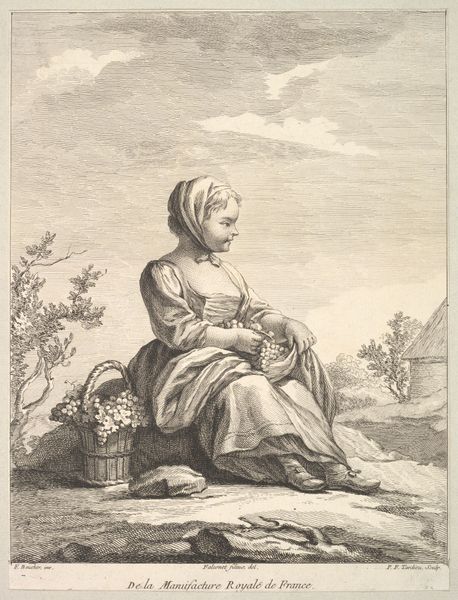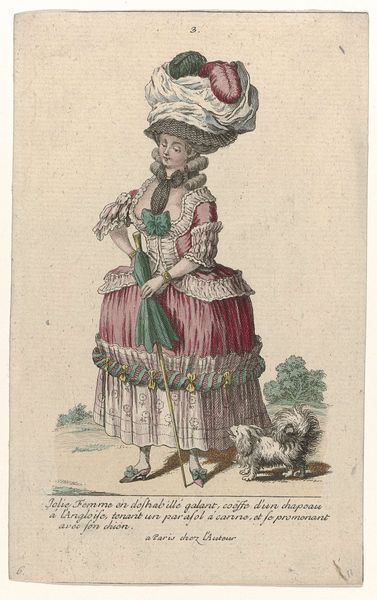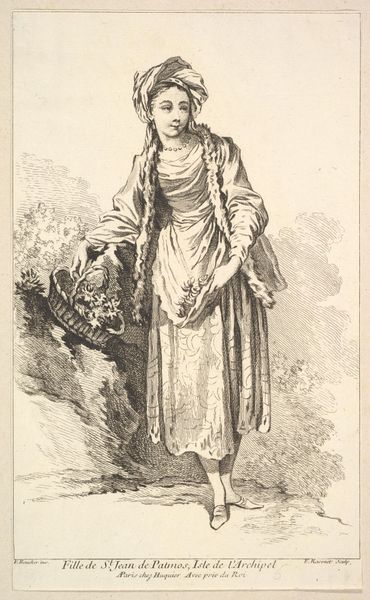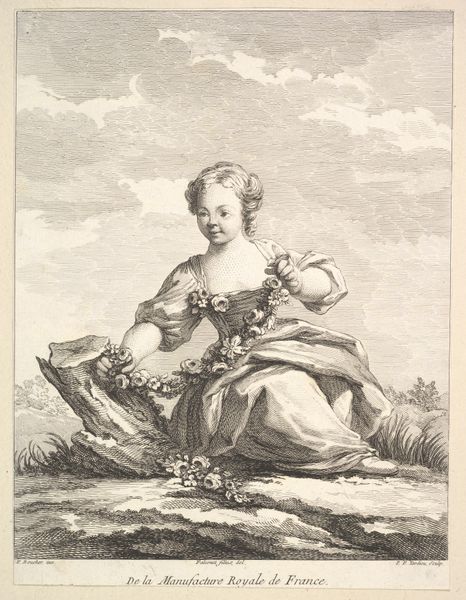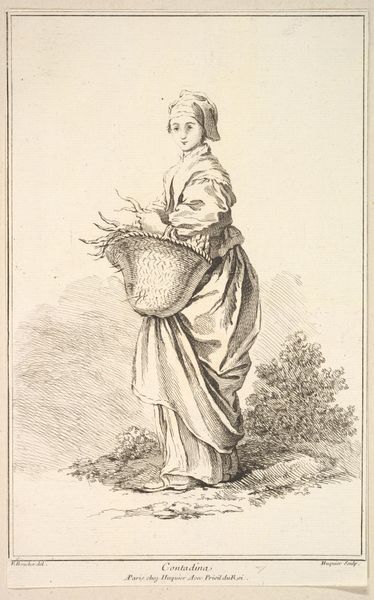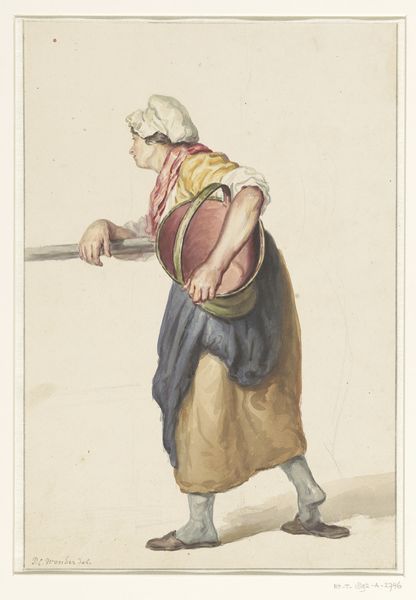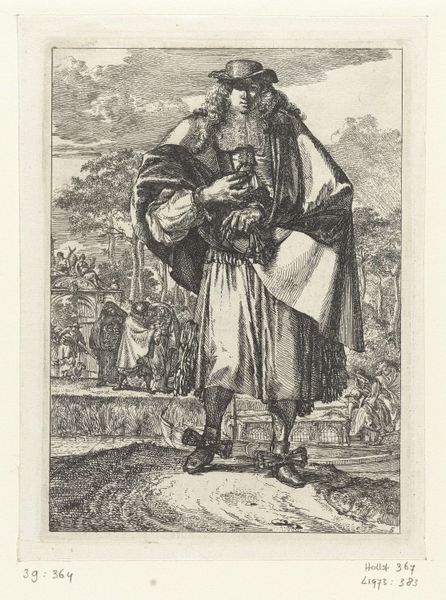
drawing, mixed-media, watercolor, pencil, chalk, charcoal
#
portrait
#
drawing
#
netherlandish
#
mixed-media
#
dutch-golden-age
#
charcoal drawing
#
figuration
#
watercolor
#
pencil
#
chalk
#
15_18th-century
#
genre-painting
#
charcoal
#
northern-renaissance
#
mixed media
#
watercolor
#
realism
Copyright: Public Domain
I love this charcoal and watercolour drawing by the little-known artist Maria Margaretha la Fargue. She was born in the Dutch Republic in 1743, and specialised in both genre painting and detailed drawings. Together with her older brothers, she illustrated novels and gave drawing lessons across the northern Netherlands. Sadly, the artist died in poverty in a church-run refugee home in 1813. For this piece, ‘Fishwife’ (1772), Margaretha la Fargue used charcoal pencil and watercolour paint on handmade paper. As the title suggests, ‘Fishwife’ depicts an unidentified wife of a fisherman who sold her husband’s fresh catch. She holds a large basket of fish and looks out of the canvas with a cheerful expression. In the eighteenth century, fishwives often had an outrageous reputation. They were stereotyped as rowdy and unpleasant characters. Yet the woman in this drawing grins happily. This work offers a fantastic insight into the working-class fashions of the 1770s. The woman wears an oversized straw hat with a wide brim, which would offer protection from the sun during the many hours she would spend outside at the market. This is unlike the elaborate hairstyles which were popular amongst the upper classes. Her white collar, known as a kerchief, consists of a square of folded linen. Kerchiefs were made from fabrics dyed with natural pigments, which produced a muted colour that was easy to maintain. They provided protection from the sun as well as modesty. The woman also wears a boned corset known as a pair of ‘stays’, and an apron layered over a full petticoat. ‘Fishwife’ shows us the practical considerations which went into working-class clothing. By depicting the woman in a realistic and sympathetic manner, Margaretha la Fargue perhaps aimed to combat or question negative attitudes towards fish sellers.
Comments
No comments
Be the first to comment and join the conversation on the ultimate creative platform.
